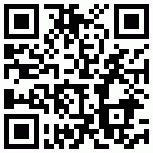
 QR Code
QR Code

What’s Behind US Building World’s Largest Consulate in Iraq’s Kurdistan?
14 Jul 2018 06:58
Islam Times - A year after the US and Iraq’s Kurdistan Regional Government (KRG) signed an agreement for a new American consulate in the autonomous region, the KRG’s head Nichervan Barzani and the American ambassador to Baghdad Douglas A. Silliman on Friday laid the cornerstone for building the consulate in the Kurdish region.
The building, the largest consulate in the world with 20 acres of size, will be constructed out of the regional capital, on Erbil-Pirmam road. Reports suggest that the construction operation will finish in 2022 and will take about $795 million in expenses, with about 1,000 Americans and local Iraqis contributing to its construction.
The US first opened its diplomatic office in the Kurdish region in Erbil in 2007, four years after it invaded the country and toppled the government of the dictator Saddam Hussain. In 2011 the Americans upgraded the level of their relations with the Kurdish region, building the first consulate in Erbil. Now they started building their largest diplomatic representation building as the autonomous northern region is entering a new period of its life.
Setting up the largest consulate in the world in Iraq in a time when the country has just gotten rid of ISIS terrorist group and is struggling to form a government after the May 12 parliamentary election does not come without political drives. So, why is the US constructing its largest consulate building in the Kurdistan region? And how will this influence the Kurds’ situation amid tense ties with the central government following the April 25, 2017 referendum and the ensuing government’s seizure of the oil-rich Kirkuk and other areas from the Kurdish Peshmerga forces?
Sowing division to press Baghdad
First White House goal revolves around creating a gap between the central government and Erbil to develop a mechanism enabling Washington to manipulate the power in the post-ISIS Iraq as the negotiations between various Iraqi factions go on to reach a deal on a new cabinet after the May election. Last month, Saeroon and Fatah alliances, respectively led by Sayyed Muqtada al-Sadr and Hafi Al-Amiri– both staunch opponents of the American military presence and political meddling in Iraq, announced an agreement to work together for a new government. The accord triggered a sense of turning out as the main losing party in Iraq among the American strategists who found it difficult to engineer a desirable government under Saeroon and Fatah.
As a result, via building a new consulate in the north, the US resorts to the Kurdish independence bargaining chip and contribution to Iraq split to press Baghdad. In other words, Washington wants to make it clear to the Iraqi factions that if Washington’s demands are not secured, then they have to prepare for a new crisis while the nation is cleansing its soil of the ISIS remnants.
For long years, it has been customary for the US to create chasms between political sides in various states to inflame crises. Iraq appears to be a target of this Washington policy in a broad level. Escalation of tensions between Baghdad and Erbil, the Americans hope, will yield Iraq’s surrender to the US demands.
Erbil to suffer consequences if helps the US with its adventures
Building the biggest American consulate in the world in the Kurdish region in a 20-acre area questions its normal purpose of being a simple diplomatic representation place. The case should not be treated normally, especially with the US record of turning its embassies into spy nests in various world countries, even in the allied ones. The question is more highlighted if we know that in mid-October last year the Iraqi forces launched a military operation to take back Kirkuk and other disputed regions from Peshmerga fighters, who took the areas from ISIS after they fell to the terrorist group in 2014. After the October events, the regional government’s political strength largely shrunk.
The KRG leaders’ engagement in a political dealing with the US, the analysts note, is largely based not on reasonable decision making but a vain optimism about Washington help developed over decades by the Kurdish leadership. This time, too, the Kurds are putting their eggs in the wrong basket, not learning from the past when the US let them down and used them an instrument to its own regional policy. The US will certainly use its consulate as a cover to regional data collection and spying operations. Taking it harmful to their national security, the regional powers will very likely respond to this cooperation.
Any regional sides’ reaction will throw back Erbil to the heart of a new regional crisis, with the initial repercussion being destabilization of the KRG. A minor actor, Erbil will likely fall victim to the American policy afresh in the middle of a game of the heavyweights. This sends an alarming message to the Erbil leaders demanding them to take into account neighboring countries’ security considerations and avoid involvement in the Washington-led adventures.
Story Code: 737206